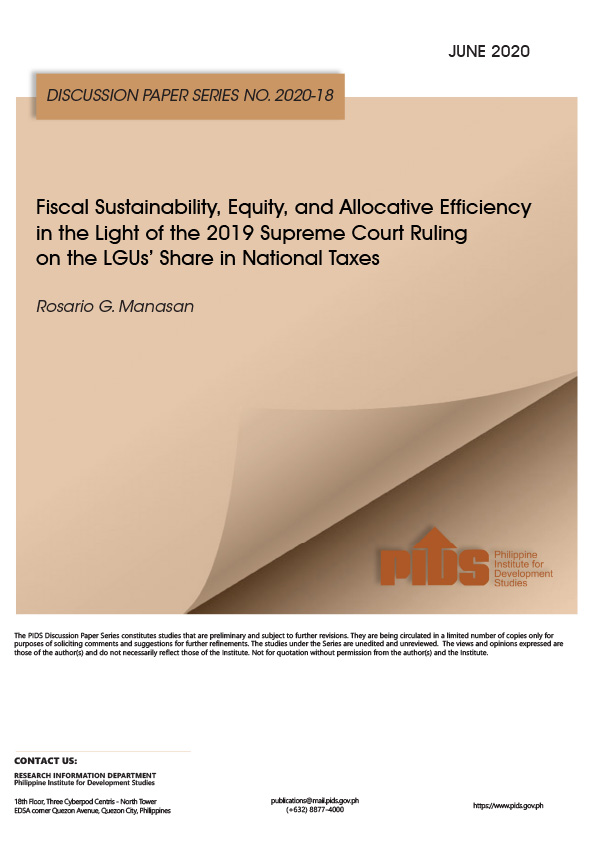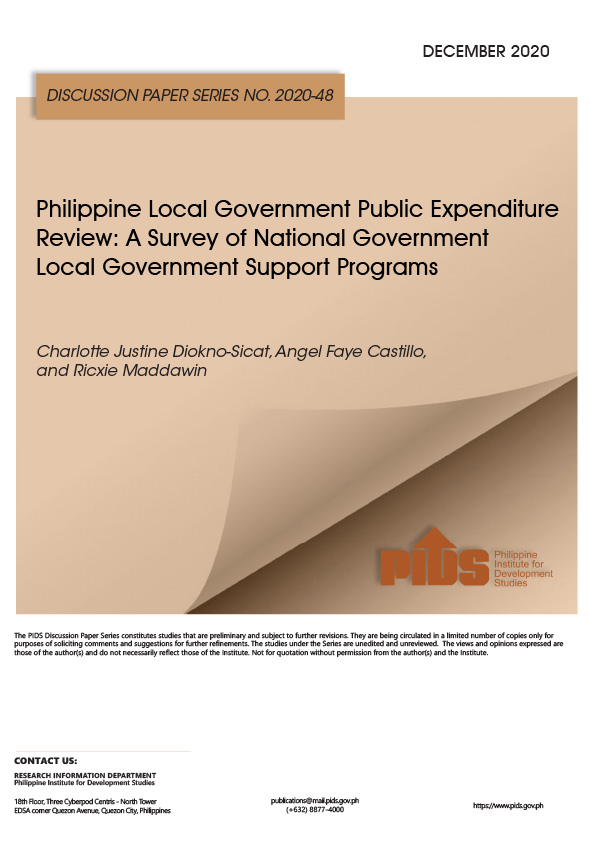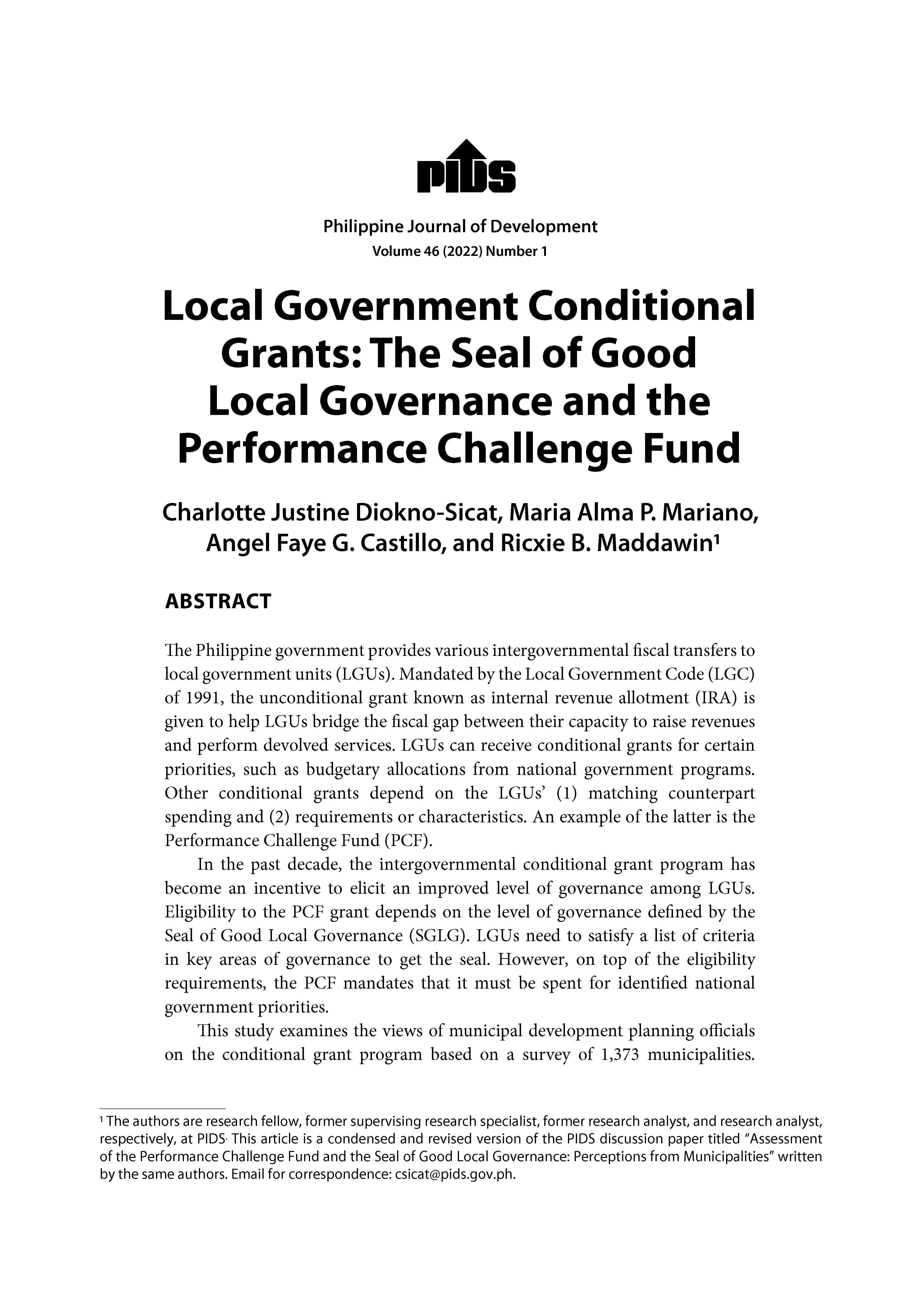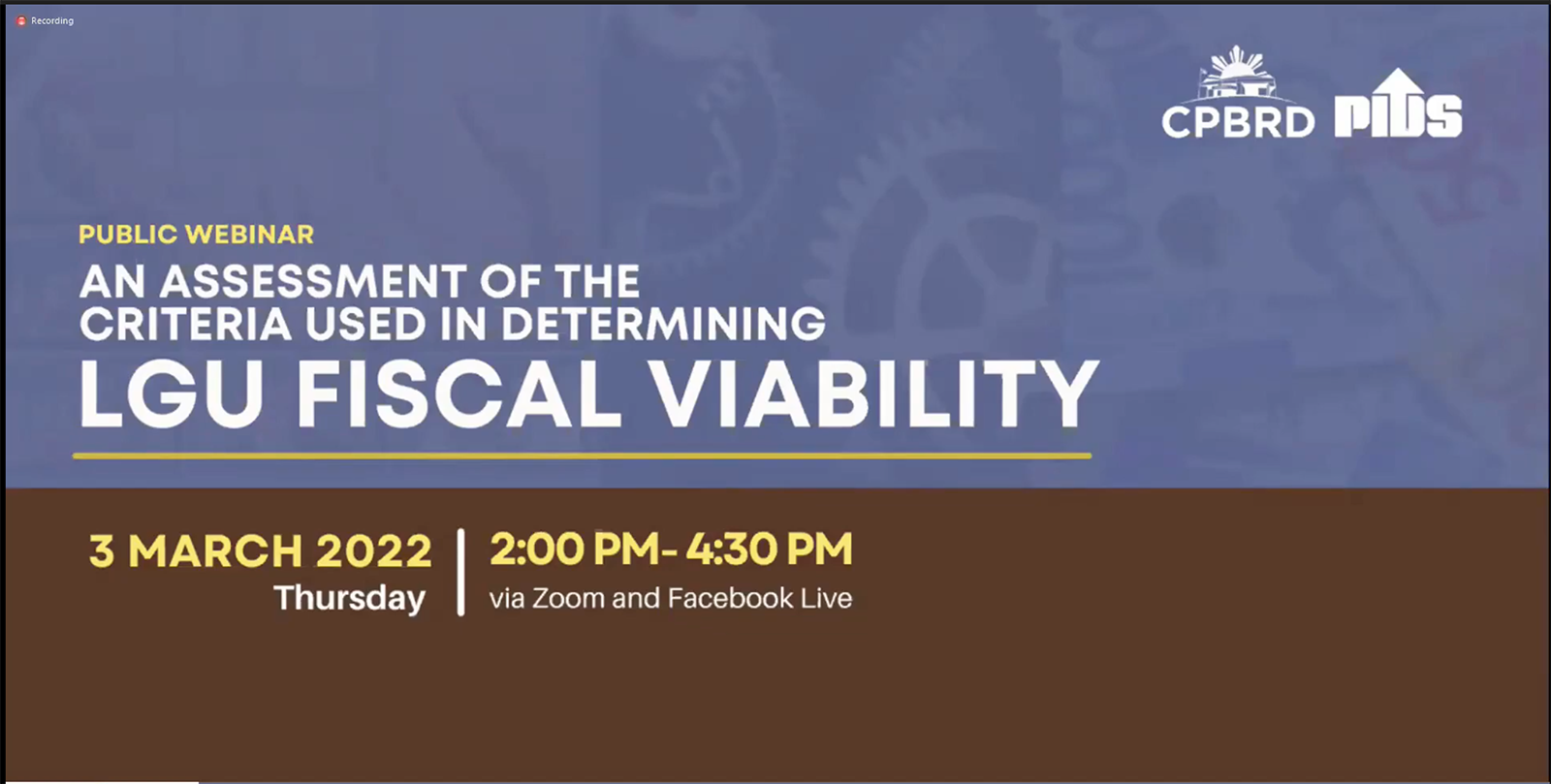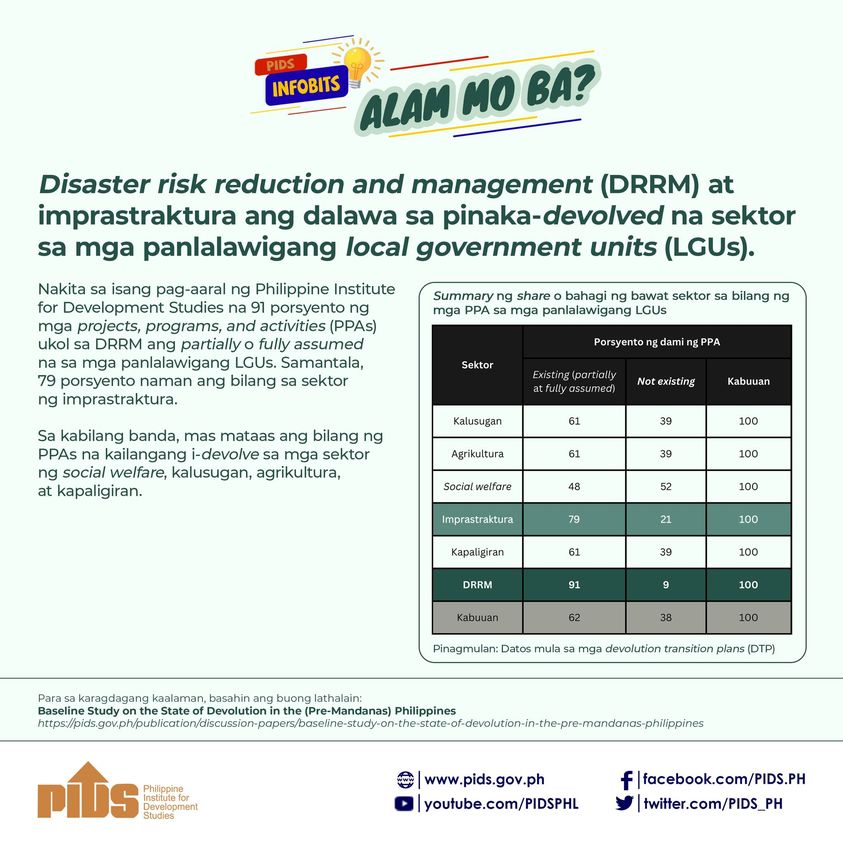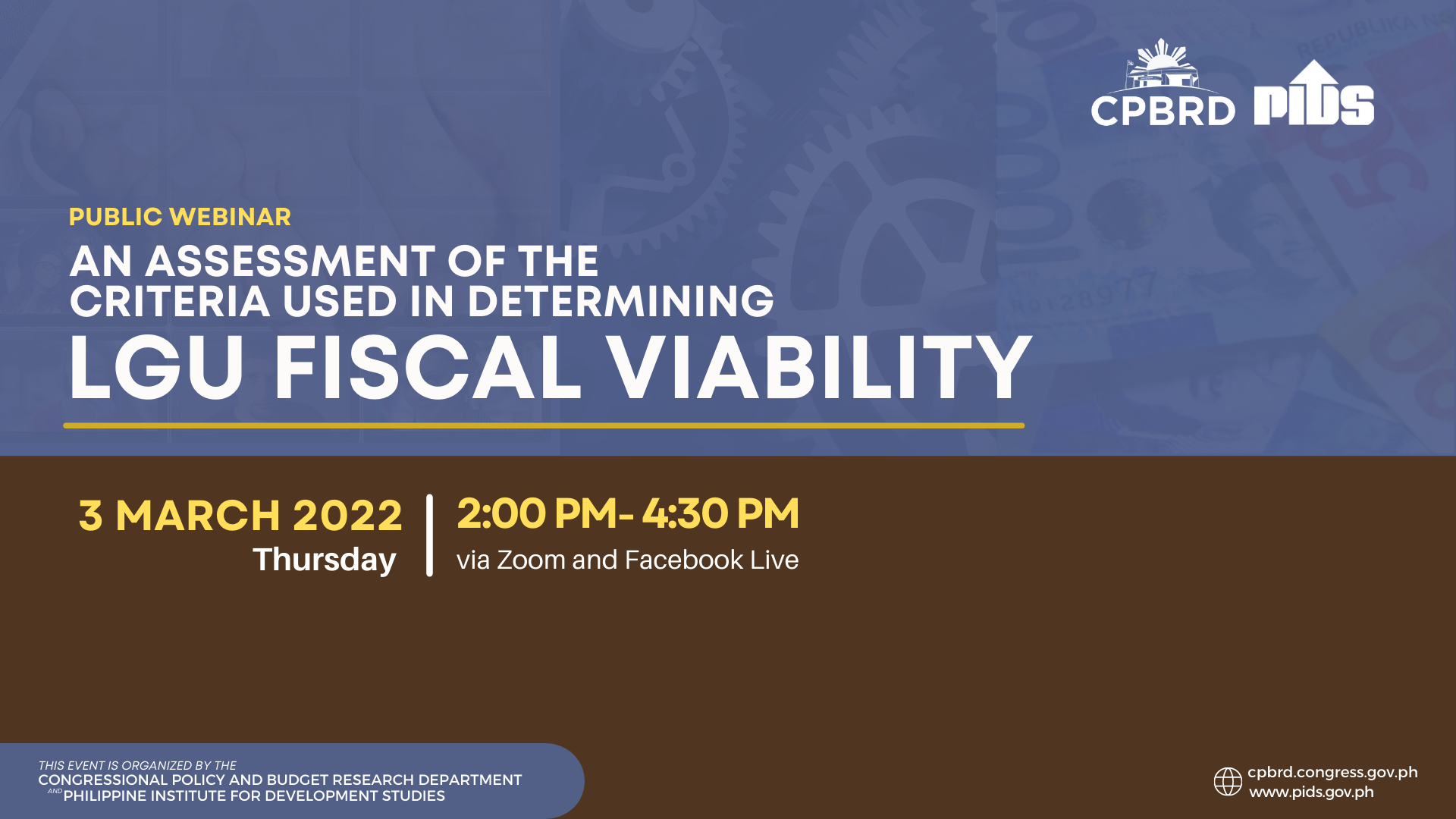
The Philippine Institute for Development Studies (PIDS), in partnership with the House of Representatives – Congressional Policy and Budget Research Department (HOR-CPBRD), will hold a public webinar on March 3, 2022, from 2:00 pm to 4:30 pm, via Zoom.
This virtual event will feature the PIDS study “An Assessment of the Criteria Used in the Determination of Philippine LGU Fiscal Viability” authored by PIDS Research Fellow Justine Sicat and Distinguished Visiting Research Fellow Vicente Paqueo. This study examined the fiscal implications of the current criteria of establishing the fiscal viability of local governments in the Philippines. Since the passing of the Local Government Code of 1991 (LGC) 30 years ago, the criteria used to create/convert a local government unit (LGU)—regular local income, population, and land area—have remained the same except for the income requirement of cities. As a result of the current distribution of intergovernmental fiscal transfers, both across different levels of and within a level of local government (a portion of the intergovernmental fiscal transfer of an LGU is dependent on the number of same-level LGUs), there exists the incentive for lower-level LGUs to want to level up to get a larger share of transfers. However, a possible negative effect of this is the creation of LGUs that cannot fulfill their mandates and deliver devolved functions and services.
The study thus tested the impact of the current fiscal viability indicators and explored other governance and political economy variables on local revenues and expenditures. The results showed that population, land area, poverty incidence, and LGU income classification are robust estimators of local revenues. Among the governance indicators used, such as the presence of an updated schedule of market value (SMV) and the number of years in office of the mayor, the receipt of the Seal of Good Local Governance (SGLG) award is the only significant one. For local government expenditures, population, land area, LGU income, the presence of the SGLG, and an updated SMV are all significant. These results suggest that the current criteria are still relevant. Still, the paper argues that minimum LGU income must be increased for provinces and municipalities and possibly impose an LGU income requirement for barangays.
A copy of the study may be downloaded from this link: https://pidswebs.pids.gov.ph/CDN/PUBLICATIONS/pidsdps2125.pdf.
DOWNLOAD PRESENTATIONS:
An Assessment of the Criteria Used in the Determination of Philippine LGU Fiscal Viability presented by Dr. Justine Diokno-Sicat, Research Fellow, Philippine Institute for Development Studies
Reaction of Ms. Sandra Tablan-Paredes, Executive Director, League of Province of the Philippines
The recording of this webinar may be viewed at https://fb.watch/bwgGl7DzMA/.

